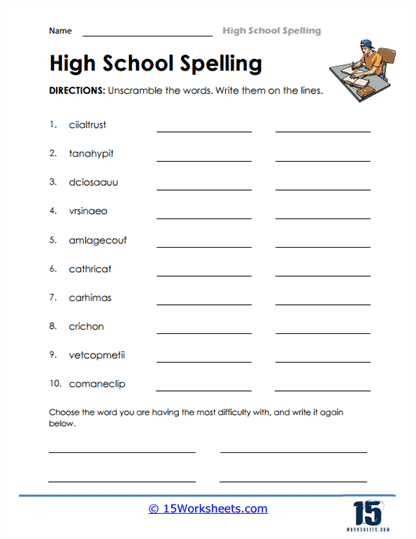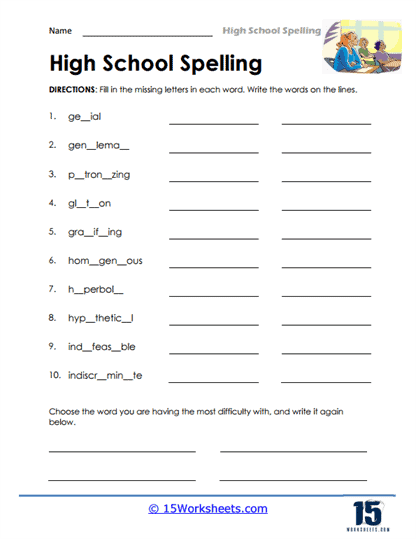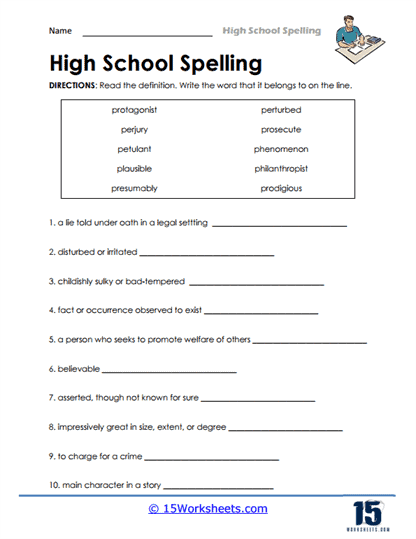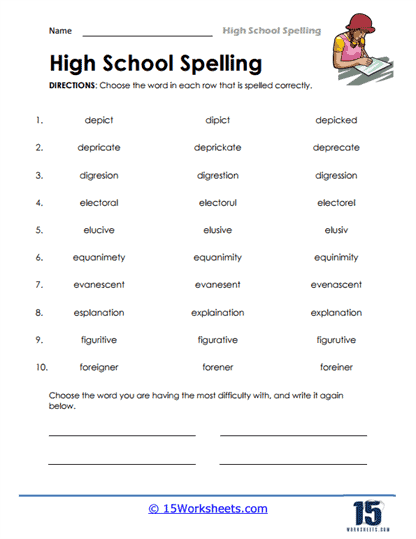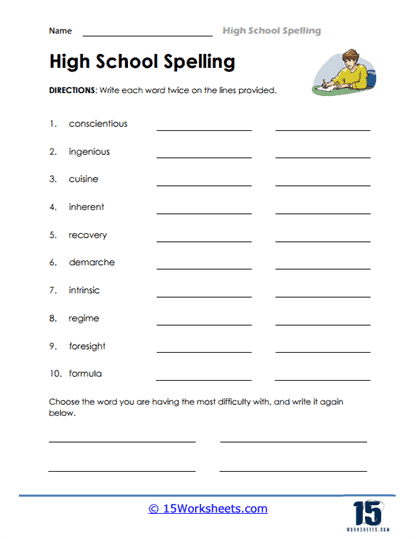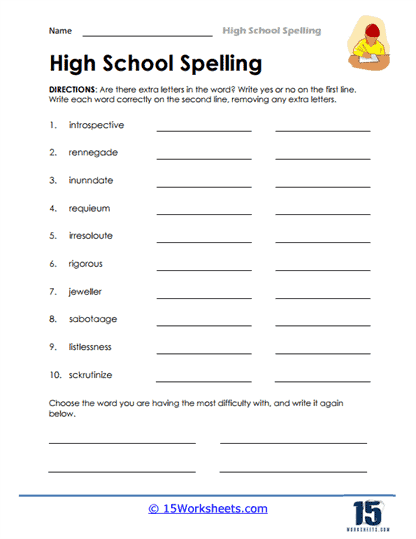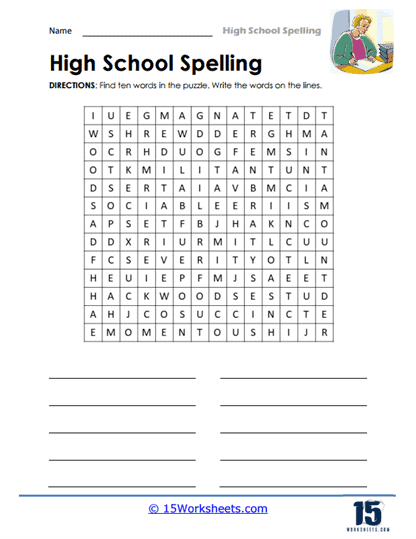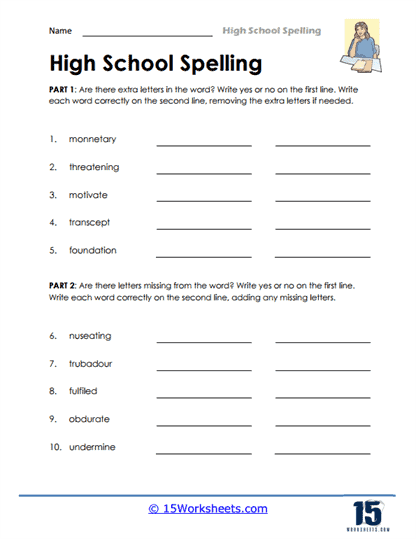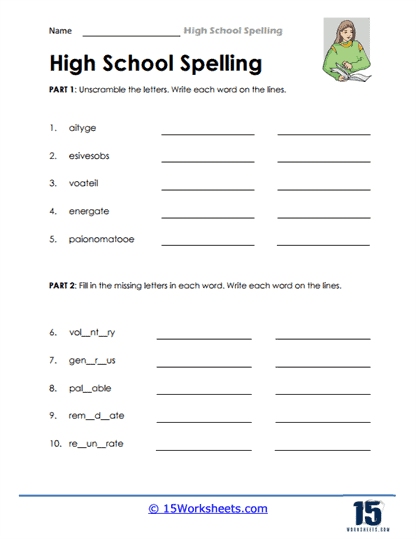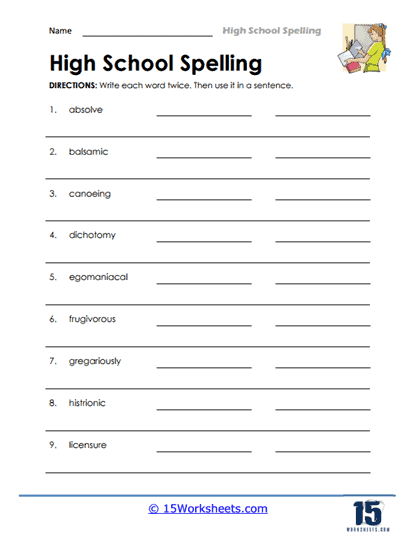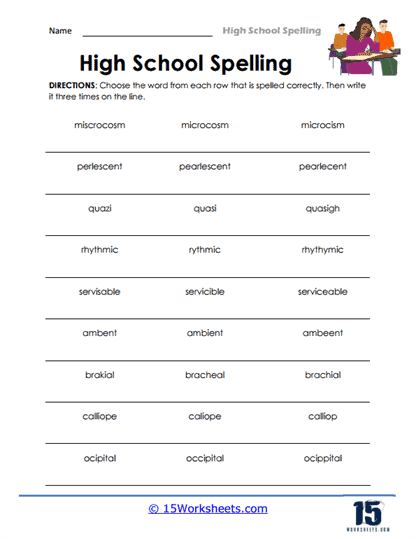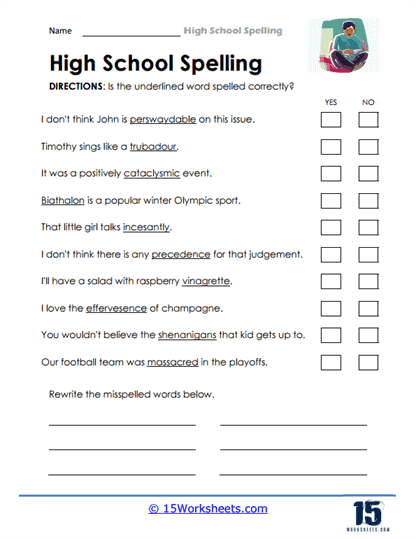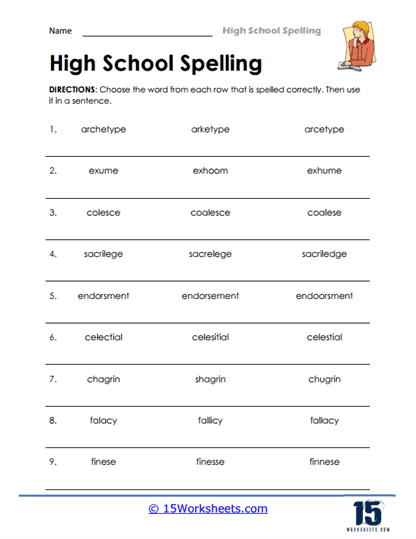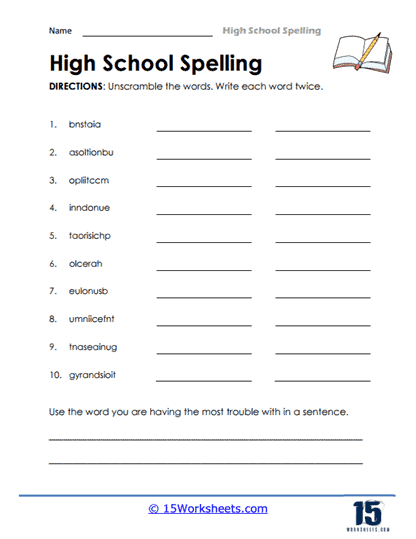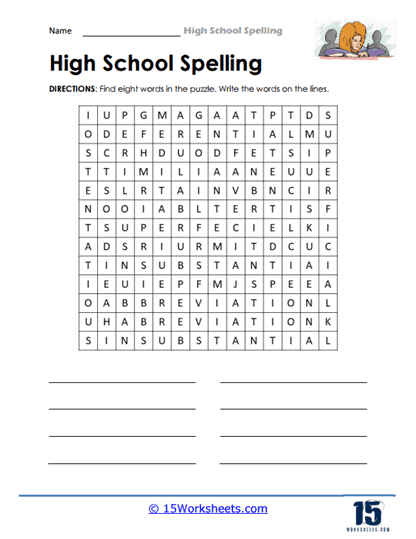High School Spelling Worksheets
All About These 15 Worksheets
This series of 15 worksheets on High School Spelling is a comprehensive and challenging set of materials designed to help high school students improve their spelling skills, expand their vocabulary, and strengthen their overall language proficiency.
These worksheets cover a range of challenging spelling topics that are suitable for students in grades 9-12. The exercises in this series feature more advanced and complex words, as well as activities that challenge students to use those words in context, understand their meanings, and recognize various linguistic patterns. Through these worksheets, students will:
- Showcase their familiarity with advanced vocabulary by unscrambling the letters of words or filling in their missing letters;
- Determine the word being pertained to in a list of word definitions;
- Spot the errors in incorrectly spelled words and be able to correct them;
- Practice writing more advanced words to increase familiarity;
- Show their proficiency on more complex words by finding them in word puzzles;
- And exercise their knowledge on the spelling of words and their meanings by using them correctly in a sentence.
Teachers can use these worksheets in the classroom to supplement their instruction or assign them as homework. Parents can also use these worksheets to help their high school students practice and improve their spelling skills at home.
Overall, this series of 15 spelling worksheets for high school students is an excellent resource for students who are looking to improve their spelling skills at an advanced level. With engaging activities, clear instructions, and ample practice opportunities, these materials are sure to help high school students become more confident and competent spellers as they prepare for college and beyond.
How To Help Older Students Who Struggle with Spelling
Improving high school students’ spelling skills can be approached through a variety of effective strategies. First, fostering a reading-rich environment is crucial, as regular exposure to words in context helps students internalize spelling patterns and vocabulary. Encouraging students to read a diverse array of materials, such as novels, newspapers, and scholarly articles, can broaden their word bank and understanding of word usage. Integrating spelling into daily classroom activities can also be beneficial; for example, starting each day with a ‘word of the day’ exercise where students learn the spelling, meaning, and use of a new word can reinforce learning. Additionally, using technology, such as spelling and grammar check tools, can provide immediate feedback and help students recognize and correct their spelling errors in real time.
Incorporating interactive and fun spelling exercises, like spelling bees or crossword puzzles, can engage students and make learning less tedious. Writing practice is also essential; by having students regularly compose essays, journals, or creative writing pieces, they can apply their spelling skills in various contexts. Peer review sessions, where students evaluate each other’s work, can create a collaborative learning environment and allow them to learn from each other’s strengths. Finally, personalized spelling lists based on common errors can help students focus on their specific areas of difficulty, while also tracking their progress over time. With consistent practice, patience, and the use of a multifaceted approach, students can significantly improve their spelling skills.
Key Tips For Remembering Words
Here are a few tips that will help you retain your vocabulary, especially if you’re a student:
- Take a notebook and write down a list of vocabulary words.
- Read all the words after a day, a week, and a month.
Keep reading. The more you ‘see’ and visualize a word, the more likely you will remember it. - Whenever you add a new word to your notebook, make it a habit to use it. Using it 10 times will ensure you’ll remember it for a very long time!
- Make it a habit to do crosswords, word searches, anagrams, and other mind games and word puzzles.
- Use word cards and read them in your free time.
- Practice learning and revising words with friends. Having a partner can make learning fun and easy.
- Use a dictionary and learn how to use one if you don’t already know.
Learning new words is a good bit but practice moderation. Eight words per day is a good and manageable number.
High school students, like people of all ages, may struggle with spelling certain words. While individual spelling challenges can vary, here are some commonly misspelled words among high school students:
- Accommodate
- Acquaintance
- Amateur
- Argument
- Calendar
- Camouflage
- Category
- Cemetery
- Conscience
- Conscious
- Definitely
- Dependent
- Embarrass
- Exaggerate
- Existence
- February
- Guarantee
- Harass
- Independent
- Irresistible
- Knowledge
- Liaison
- Maintenance
- Necessary
- Occurrence
- Perseverance
- Privilege
- Recommend
- Relevant
- Rhythm
- Schedule
- Separate
- Sincerely
- Success
- Supersede
- Until
- Vacuum
- Weather (vs. whether)
- Wednesday
To improve spelling, students can practice regularly, use mnemonic devices, and engage with the words in different contexts, such as reading and writing. It’s also helpful to review lists of commonly misspelled words and focus on learning the correct spellings.

